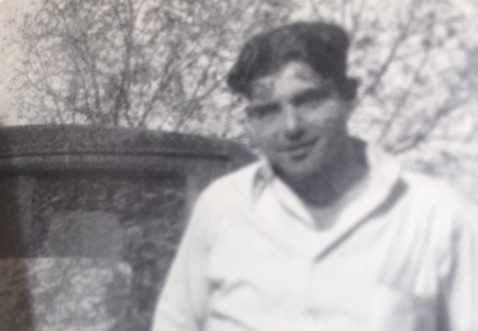Happy Father’s Day to all of you. My thoughts invariably turn to my own father whom I lost relatively early in my life to an automobile accident. I was in my twenties, and there is no shortage of times since when I have missed his steady counsel, his straightforward guidance, and his unconditional love.
He was from a far different America than our current nation. His character was shaped by the relatively limited horizons he experienced but also by the goodness of his heart and an unbreakable work spirit. He toiled with his hands and back in the sweltering Texas heat for most of his life in order to provide for me, my mother and my siblings. I will forever be in his debt.
I wrote about my father a lot in my recent book “What Unites Us.” When I reread the book I found that he appeared more than I expected, which I suppose I should have expected. It amounts to a collection of personally resonant anecdotes and collected wisdoms that continue to shape my life many decades later. So in the spirit of sharing, I thought I would include an excerpt from the book on my father here.
——
My father was the kind of hunter who believed that you shouldn’t hunt something you don’t know a lot about, and he instilled in me a deep respect for the natural world. As we walked together on warm summer evenings, his hunting rifle in hand, he would explain the life cycle of rabbits and that the best place to find squirrels was where the “hardwoods met the pine trees,” because squirrels liked the height of the pine trees and the nuts of the hardwoods. Whether this was provable from scientific study, or even whether someone has ever. chosen to study such a thing, I do not know. But it was the kind of wisdom that came from a lifetime of observation, and nature tends to make all of us open our eyes and think.
My father also believed that you ate what you killed, and so my mother had a number of recipes that fit both rabbit and squirrel interchangeably. Sometimes we just ate the meat broiled with a side of sliced tomatoes or homemade pickles. Other times it was stewed. More often, it was fried. It might not sound like much, but it was pretty good. My father would also usually get a couple of deer during the hunting season, which was the legal limit. We would eat every bit that was edible, and that could take quite a while. Dad was terrific with a shotgun, so we spent many a time cleaning, then eating, ducks and quail.
In the nature around my house I learned life lessons—an overworked phrase, I grant you, but an apt one. When I was nine years old, my friends and I came across a giant softshell turtle in the Buffalo Bayou. It was the biggest one we had ever seen, and we spent the entire day tracking it. After many foiled attempts, we finally snared it, bound it up, and walked back the mile or so to my parents’ house. We filled a tub with water in the backyard and put it in. We felt like conquering heroes, but that only lasted until my father came home from work. When he saw what we had done, he was furious and explained to me how such behavior could harm a wild animal like this turtle. Even though it was after dark, he insisted that I carry the turtle back to where we’d found it. Now, this wasn’t the equivalent of a valiant effort to save an endangered species, but my father’s instinct was the same: Nature was not there for us to exploit or toy with. It is a lesson I have never forgotten.
Going into the forest with my dad was a backdrop to my young life. It was just what people did. I was expected to be able to identify the species of trees and to know how to avoid getting lost. Nature wasn’t something that you drove to, or planned on seeing, or for which you bought a fancy outdoor wardrobe. I worry that now it is an activity that must compete with soccer practices, homework, piano lessons, and all the other responsibilities that fill up the calendar of a family with children. All those are surely wonderful and rewarding, but so too is just letting your legs wander through the trees and meadows, and having your mind wander as well.



